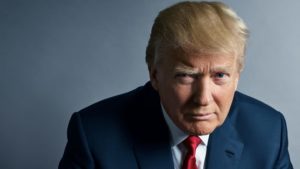Special to WorldTribune.com
Thanks to a weak and mediocre Mainstream Media, the only thing that people learned about the presidential contender, the Republican candidate Donald Trump, from a Sept. 9, 2015, interview by the Rolling Stone’s Paul Solotaroff is that he allegedly offended a female political rival. As far as comments on appearances, it seems Mainstream Media has only blessed Trump’s hair!
According to the American Press Institute’s list of main elements of journalism, one may conclude the American mass media fails on many points. It frequently distorts the “truth,” lacks loyalty to the people it counts as audience, is not independent (at least emotionally) from subject matters, does not monitor power in an equitable manner, does not stick to relevancy, and does not provide a comprehensive and proportional news report.

How can the Media’s moral compass be reset as ancient Iranian philosophy Zoroastrianism taught by distinguishing good from bad.
From the Rolling Stones article, the American voter may learn in sequential order that:
- Before formulating policies, Trump first identifies the problems such as American companies moving jobs out of the country (“inversions”), and incompetent management has weakened the nation on all fronts.
- Trump is a “Conceptual thinker” with a “Mercurial” mind so that he may move from one topic to another quickly and easily in such a manner that most people may have a hard time following it as Solotaroff admits to getting “head-snapped.”
- Trump wants to learn from others when he is not familiar about a topic (i.e., his inquiry about New Hampshire’s heroin problem).
- Trump’s a fast learner.
- Trump states his position on matters which is more important and realistic at this point than actual policies which require full disclosure, accurate intelligence information, consideration of appropriate legal ramifications, brainstorming options, and reaching a decision with help from trusted advisors.
- Trump can be focused when necessary under pressure while maintaining his authenticity.
- Trump repeats his positions because new ideas have to be repeated in order to overcome learned behaviors. Trump is dealing with an angry public that has emerged from having had their unity, sovereignty, and citizenship rights trampled on by the Obama Administration supported by Mainstream Media. Trump will keep repeating his views which run contrary not only to the Obama Administration but most of the business-as-usual politicians (Democrat and Republican) until he can reverse the doom-n-gloom and social conditioning of the masses so they can get out of the demoralization process to which they have been exposed.
- Trump is not concerned with all Republicans supporting him, but that majority of the American people will elect him as the next president. This is obvious from the wide range of supporters listed in the Rolling Stone article including newly-converted Democrats. He has once again brought to the forefront the need to look at the candidate rather than strict party affiliation which has probably contributed to the nation’s current demise.
- As Solotaroff notes, Trump is “immensely cunning and deft, a top-of-the-food-chain killer” as well as committed which means even Mainstream Media understands how this world operates.
- Trump should be taken “dead serious,” because many people do despite the Mainstream Media, Political Establishment, and interest groups having their own preferred and paid for candidates.
- Trump understands the concerns of his voter base and speaks to them directly. Despite his financial privileges, he has not lost touch with the average person; the same “furious demographic” looking to survive the disruptive, disrespectful, and disastrous two-term Obama Administration.
- Trump knows that timing is everything so he immediately takes on his rivals and opponents head on.
- Desperate times lead to “situational leadership” and that’s why Solotaroff feels that Trump “gives every impression of being born for this – and of having the time of his life.”
- Trump has a bust of Ronald Reagan and a stuffed animal bald eagle in his office. Symbolism is another key element in humankind’s need for meaning-making.
- Trump is not robotic or coached. Therefore, the typical Q & A approach is probably not the best method in understanding him.
- Trump is intuitive. Everyone has the ability to be intuitive. Unfortunately, this natural skill gifted to humankind for survival and success is diminished in many via social conditioning.
- The Trump kids have had a solid and balanced upbringing despite a privileged environment.
- Trump is out of the box and creative in business opportunities. This is a plus for a country that is in heavy debt with troubling unemployment rates and a mediocre housing market that has not yet recovered.
- Trump’s main appeal is that he is self-funded and has given his allegiance to the people. He is not a traitor to his fellow elites in both parties. Instead, he is reminding them that we are mortals and may not take our earthly wealth and power with us. Therefore, they need to wake up and readjust their moral compass.
- Trump has shown that “seasoned operatives” in political campaigns bring victory only when the masses are powerless against the major donors funding the “operatives.”
- Trump does not approach his candidacy as “the ultimate high-risk, low-return endeavor,” because he sees the nation at a historical cross-road and since he has the means then he is standing with many Americans in wanting to shift the direction.
- Voting for Trump may not be a huge risk for the masses given the people have unfortunately been exposed to broken and empty promises by politicians for decades. Based on recent polls, it seems many are willing to take a chance on Trump’s promises.
- Trump seems to be good at judging characters.
Finally, an interview that takes the reality of Donald Trump seriously
Sheda Vasseghi is a doctorate candidate, historian, and educator specializing in Iran (Persia). She is a member of Azadegan Foundation in Washington, D.C.
